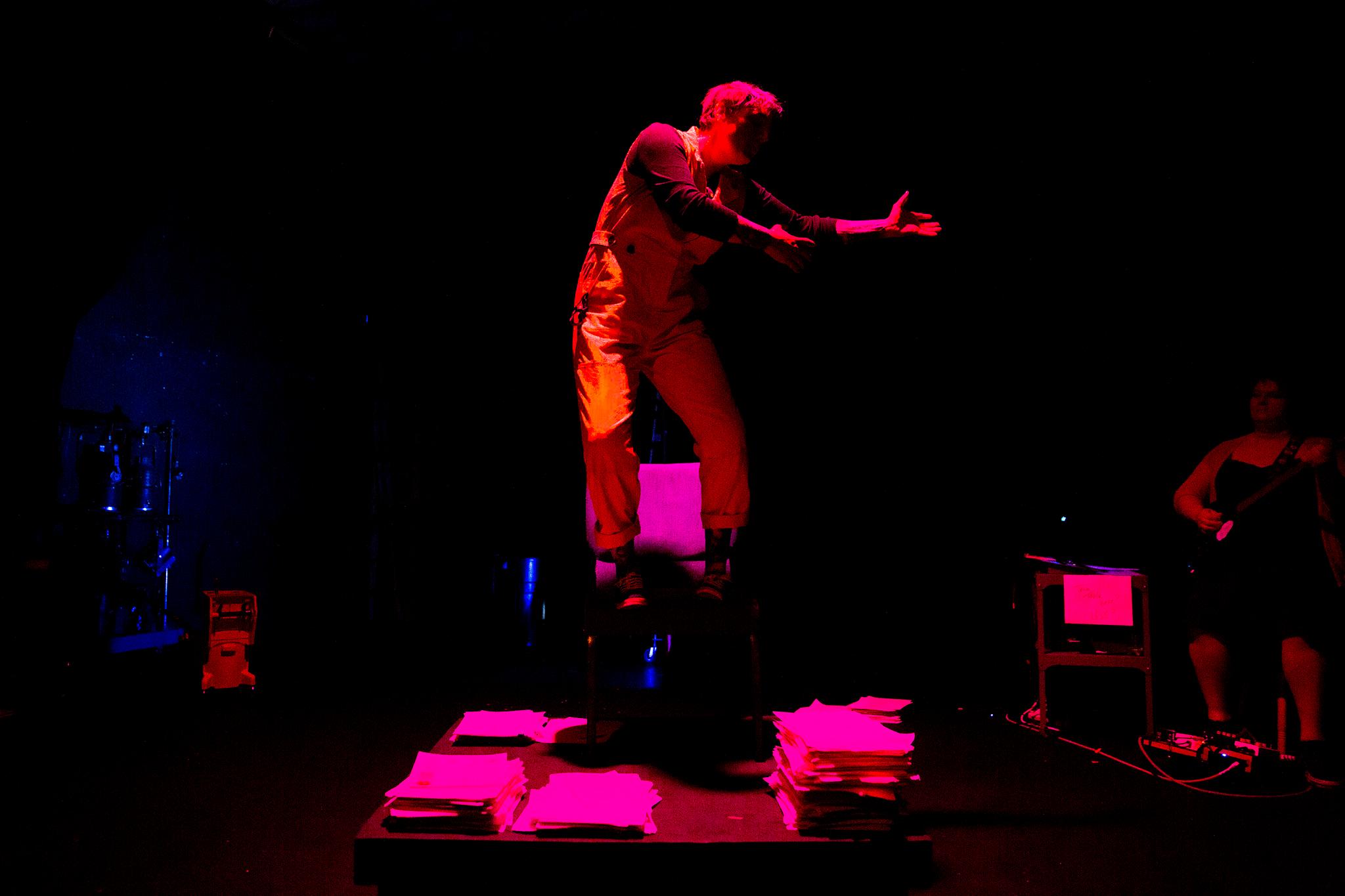Ever since she first encountered the story of the princess Agraulus, a character in Greek mythology, Denver artist Miriam Suzanne has been fascinated with the character. Agraulus is the oldest daughter of the first king of Athens. She appears a number of times and in multiple myths throughout ancient texts, but readers never learn much about her interior world.
"She's sort of a bit part in Greek mythology," Suzanne said. "She's an important person in the world, never the focus of any of the stories. And I think that was already interesting to me. Here's someone that keeps getting mentioned, but never gets a full story."
But more interesting to Suzanne was the character's paradoxical storyline. Throughout the mythology, Agraulus dies multiple times, in different ways and for different reasons. She effectively lives three very different lives and experiences three different deaths throughout the stories, which are never reconciled with one another or explained.
In one version, Agraulus is a hero who saves Athens, lauded as a patron of soldiers, who devote their lives to her. Suzanne said that while that story is the most historically accurate of the three versions, it's the one the storytellers seem to explore the least. In the other versions, she's a villain or a minor character.
Agraulus' conflicting stories resonated with Suzanne. There had been various moments in her own life -- when she was going through a divorce, or when she underwent her transition -- where her story had changed dramatically in some way, and the people around her had a hard time reconciling that change with the person they knew.
"I found that regularly, I was having to update people on the story," she said. "Like, people would be confused by the change, and they would want to know how this change impacts their memories of me. Like, oh, wait, so you're divorced now? Do I rethink the whole relationship? Oh, you're transitioning, does that change everything I remember about you? Was it a lie?"
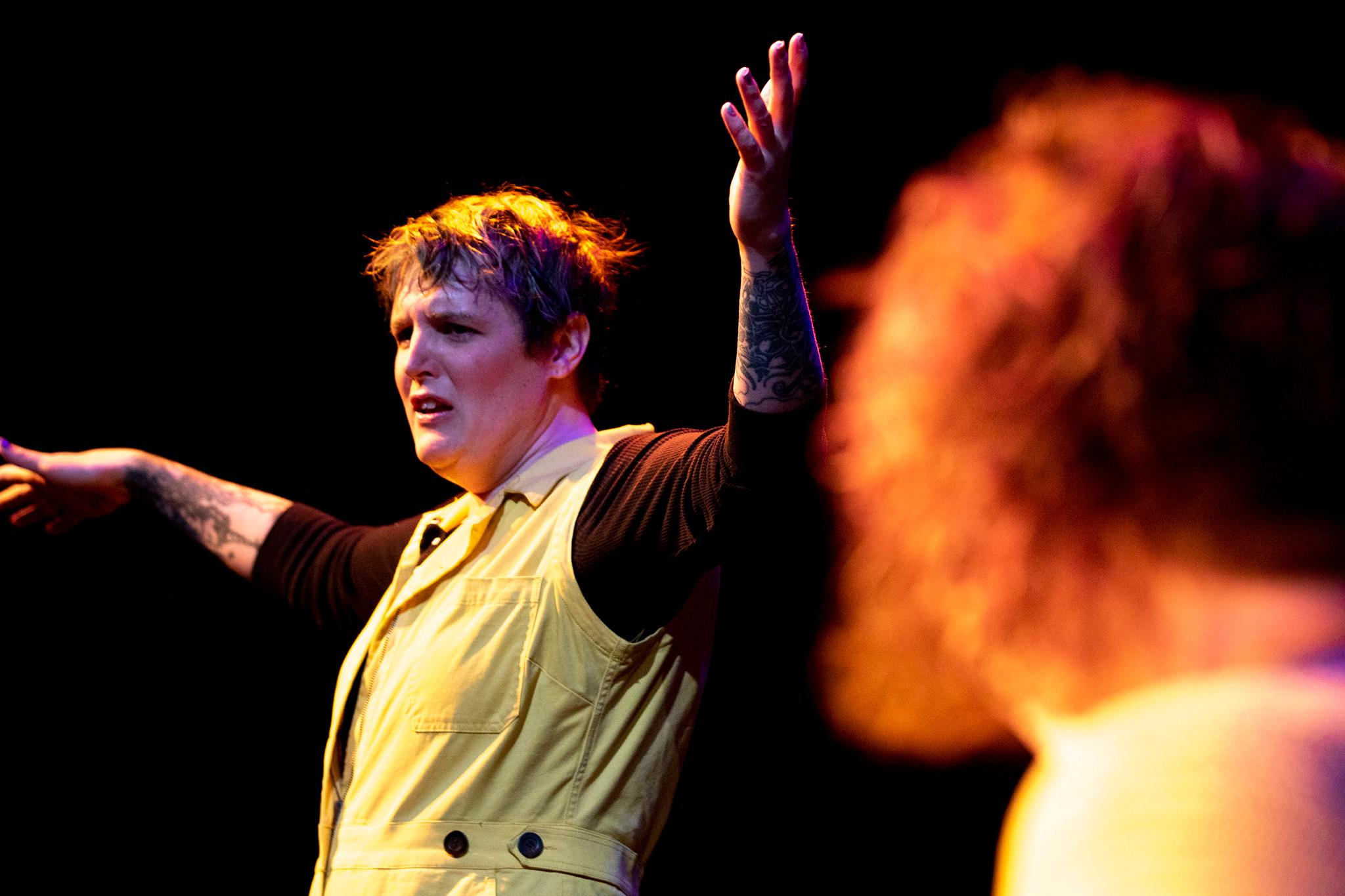
In 2010, Suzanne and frequent collaborator Julie Rada started writing poetry about Agraulus. Over the years, they tossed around more ideas for projects built around Agraulus' story, occasionally putting together versions of performance based on the myths. Then, in the summer of 2021, Suzanne decided to finally make something of it. That's how her new play Pity+Fear (A Travesty) was born.
Presented by Grapfruit Lab, a mixed-media and community-focused theater company cofounded by Suzanne, Rada and their collaborator Kenny Storms, Pity+Fear (A Travesty) is a darkly comic Greek tragedy about Agraulus and Suzanne's relationship with the character.
"There's the sense of, I can't put my story together, quite," Suzanne said. "I sort of have two paths that I remember vividly. And they come together in a single body. What's that? What's it like to have multiple stories and be uncertain? And do you always die at the end? And how many times do you have to die?"
The play is written by Suzanne and directed by Rada, in collaboration with Kenny Storms, Ben Raginmar and Erin Rollman, and with original music by local musician Josselyn Cool, who performs with Suzanne in the bands Teacup Gorillla and The Better Selfs. Cool also performs onstage alongside Suzanne.
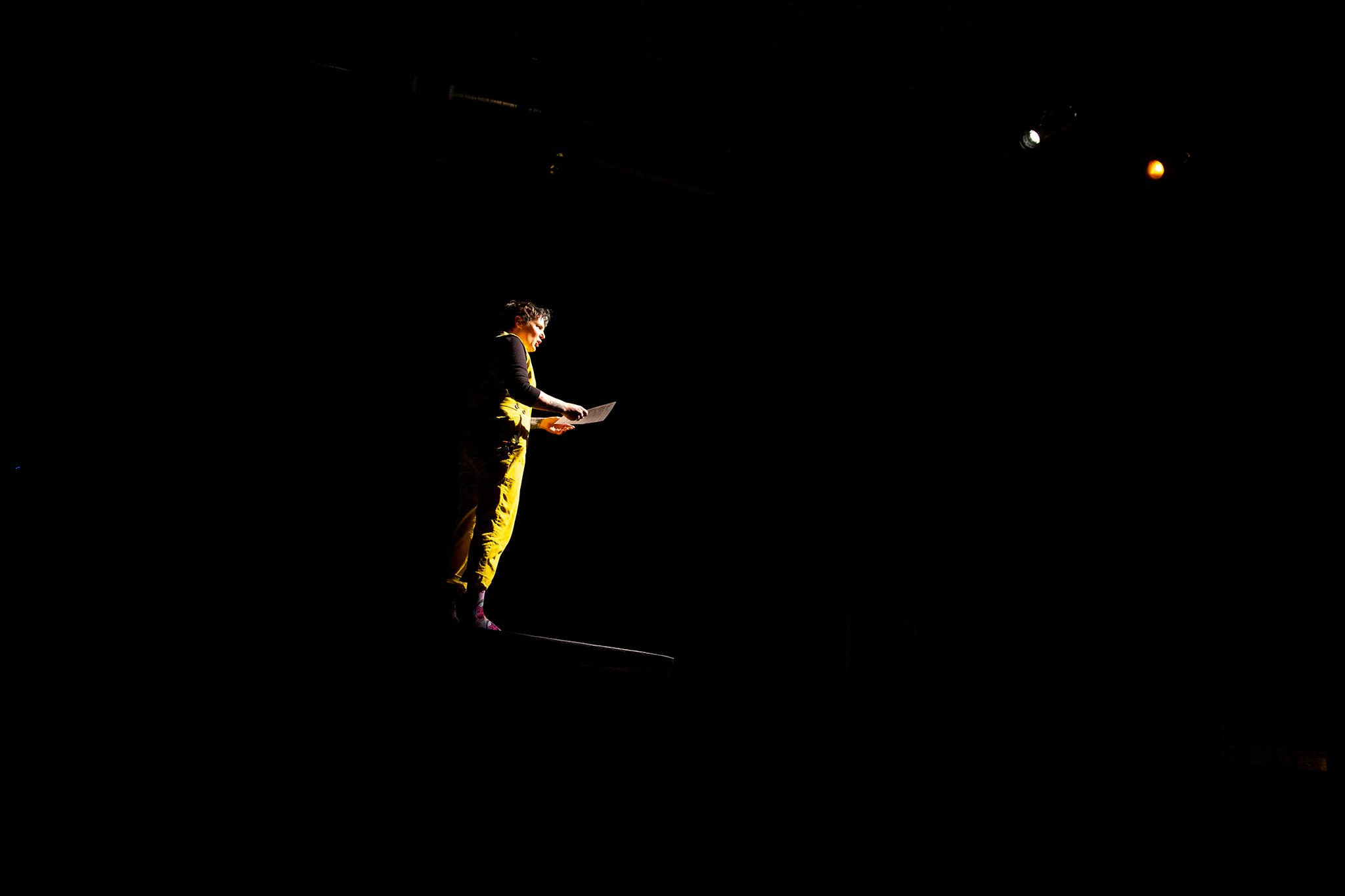
Pity+Fear was originally conceived as a one-woman show. Now, it functions a one-woman show, but with Cool stepping in to perform music or to enter into a dialogue with Suzanne's character.
"I had jokingly said the show was a one-woman play with two women, a guitar and three quarters of a script," Cool said.
The conceit is that the show isn't fully written, and Suzanne and Cool's characters clash with one another as they struggle to put it on. The beginning is pretty bare bones. Suzanne stands on the stage, attempting to tell Agraulus' story and exploring her own relationship with it. Cool starts to chime in and challenge some of Suzanne's ideas. Neither Suzanne nor Cool quite knows their roles, and soon their roles start to clash and blend together.
"The show starts to become something else. It sort of transforms throughout the duration," Rada said. "At the beginning there's this sense of roughness and sort of self conscious, rehearsal, an unprepared thing. And that's where [Cool] ends up having a lot more of a dialogue."
Cool's music is gradually integrated into the story, and the music and text start to blend together into a more curated, stylized sensory theatrical experience.
"Shocker, a pair of trans women writing a play that transforms halfway through," Cool joked "Big surprise for everyone, I know."
As the women tell the Agraulus' story, they attempt to examine it through the lens of Aristotle's understanding of what makes a good story, as described in Poetics.
"Aristotle talks a lot about how a story should be told, and how a tragedy should work, and how linear it should be, and contained and reasonable. And I liked that up against this unreasonable character that could not be contained in a single story," Suzanne said. "He wanted the story to be solid and connected and not have any questions left open."
At the beginning, Suzanne's character wants to define everything neatly and get the terms just right. As Cool pushes back against those ideas, insisting upon the importance of raw and honest storytelling, that determination breaks down over time. Soon, Suzanne and Cool are weaving the princess's story with their own through live music and soliloquy, superimposing personal, philosophical and mythical elements to explore their own identities as queer and trans women. They interrogate what it means to have and live in a human body, and what it means for a person's story to change over time as Suzanne's did, and the pressure to explain those changes so people might accept them.
"I did have this sense that you're supposed to have a defense for these things," Suzanne said. "And it's sort of what Aristotle does, is he defines this term poetry in a very tight way, where suddenly the only good poetry is one kind of poetry, and everything else is bad."
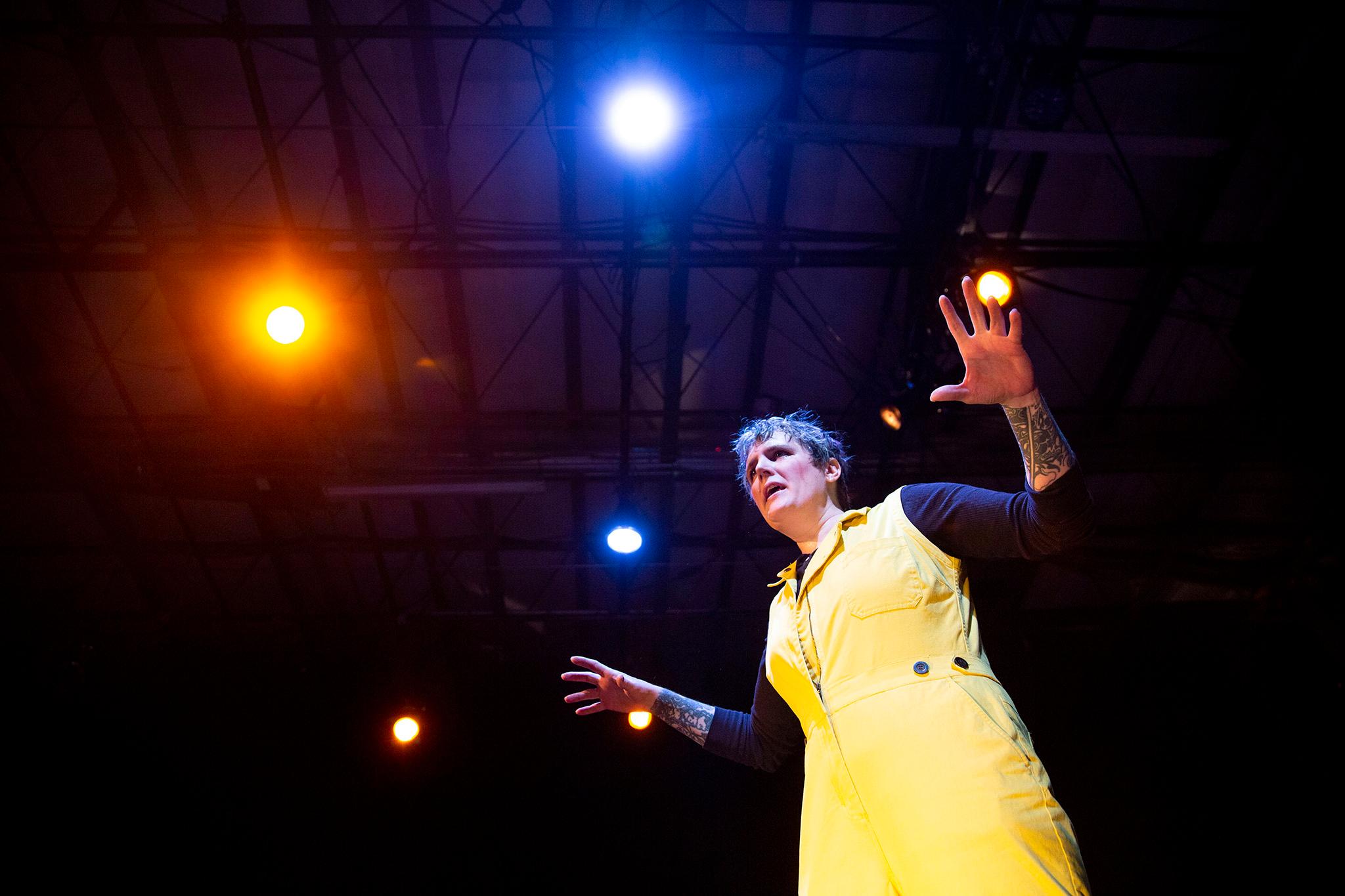
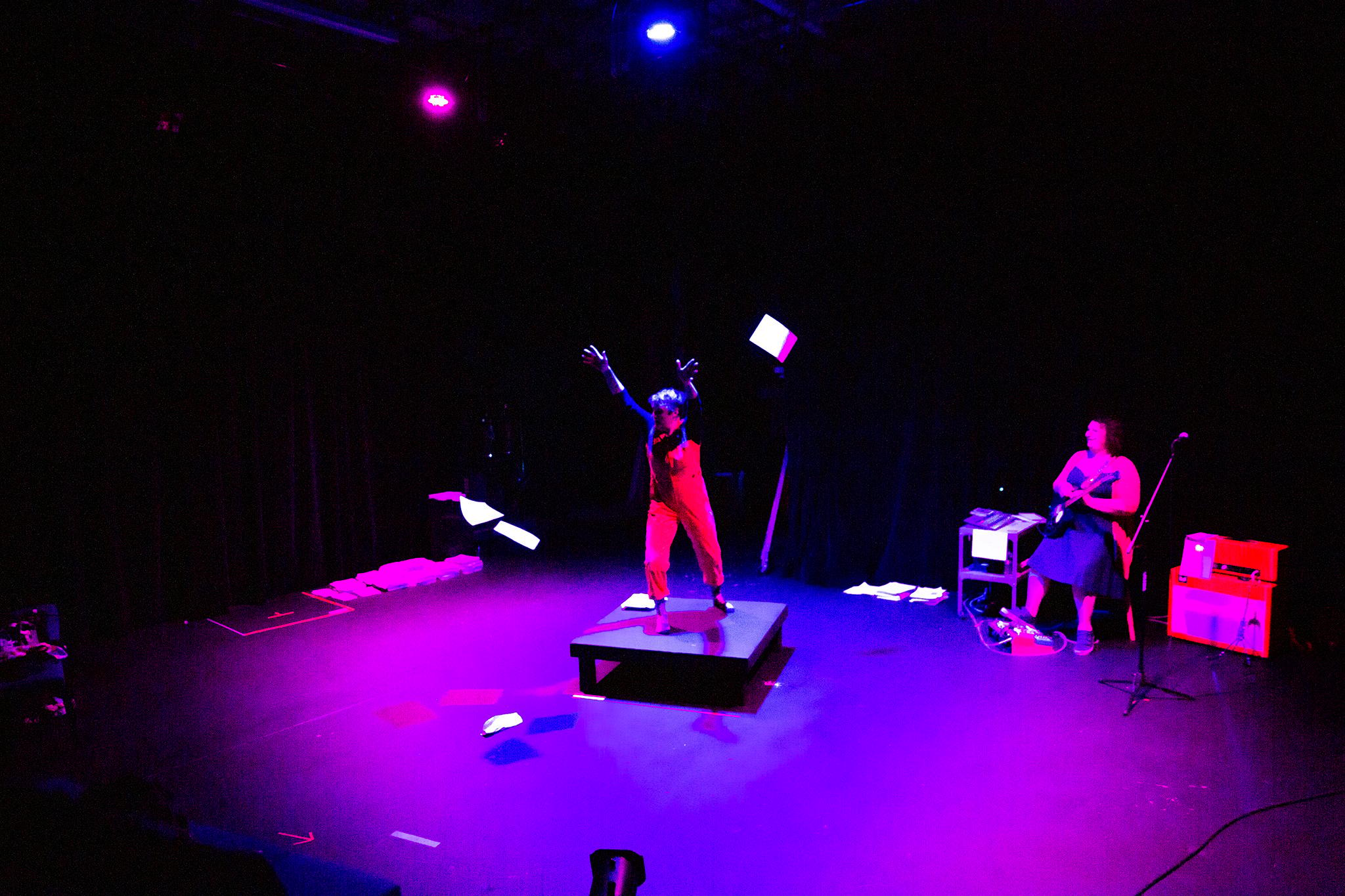
The title comes from Aristotle's definition of tragedy -- that it should evoke pity and fear as a means to achieve catharsis. But it's also about the way people are defined, the ideas that are placed on us.
Both of those things - pity and fear -- have been hung on Cool and Suzanne despite their attempts not to be cast in those roles.
"Being a trans woman in this world, that's mostly how I see characters like me on TV. They're there to evoke pity or fear," Suzanne said. "It ties in somehow to the emotions that we feel around our body and about other bodies, reactions to things that scare us or are different... And it's sort of that same through line of taking ideas and putting them in our bodies."
The second part of the title, "a Travesty," playfully twists the meaning of a word rooted in transphobia.
"I always thought of travesty as tragedy, but worse," Suzanne said. "The origins of it are 'travestir' -- to cross-dress. And it has sort of this implication of a parody. And so I pulled that in. I felt like, in some ways, what we're doing is a parody of Greek tragedy. So that fits. And then also, it's sort of an anti-trans, anti-cross dressing slang word that became something terrible, that is associated with tragedy."
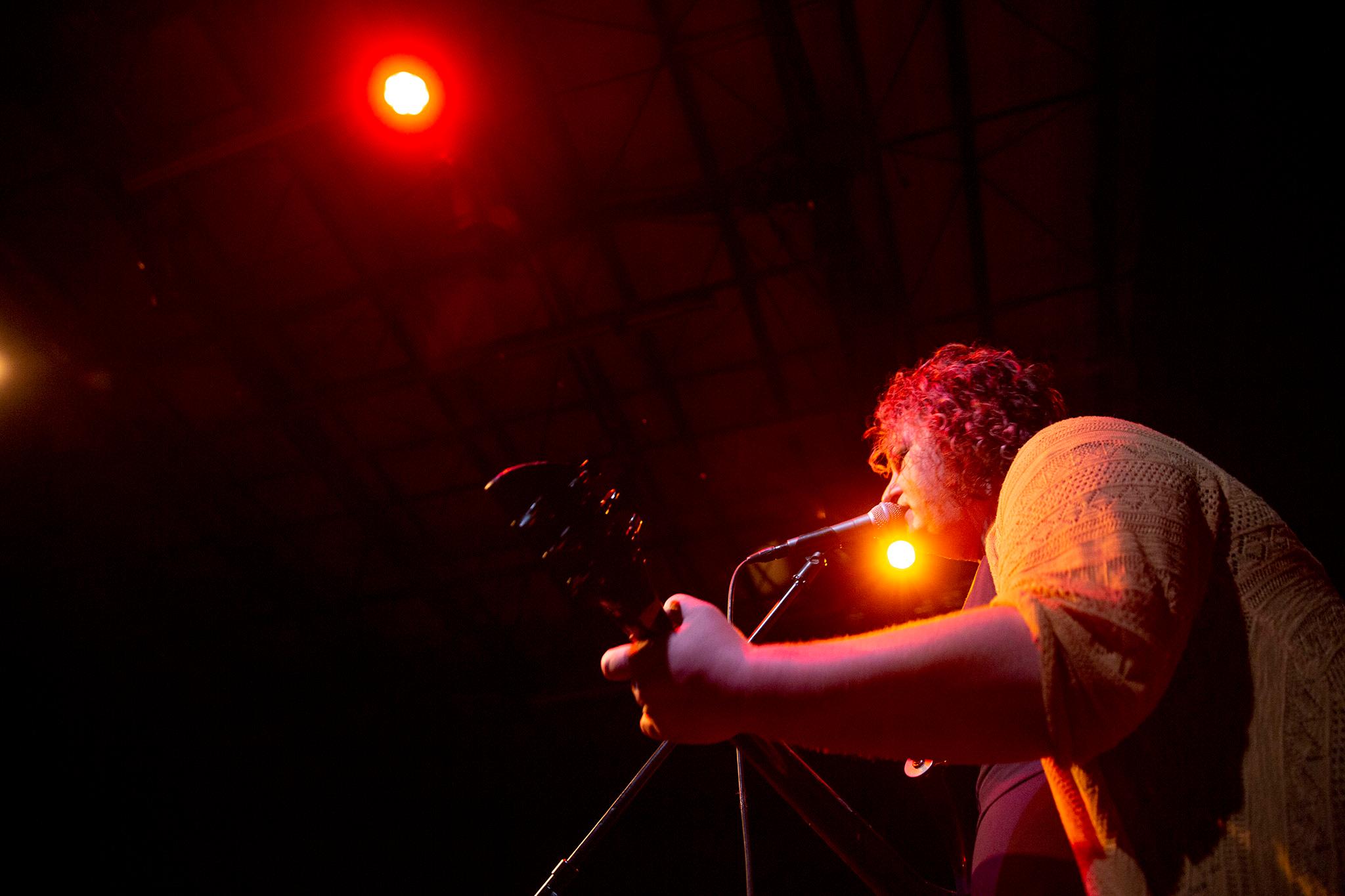
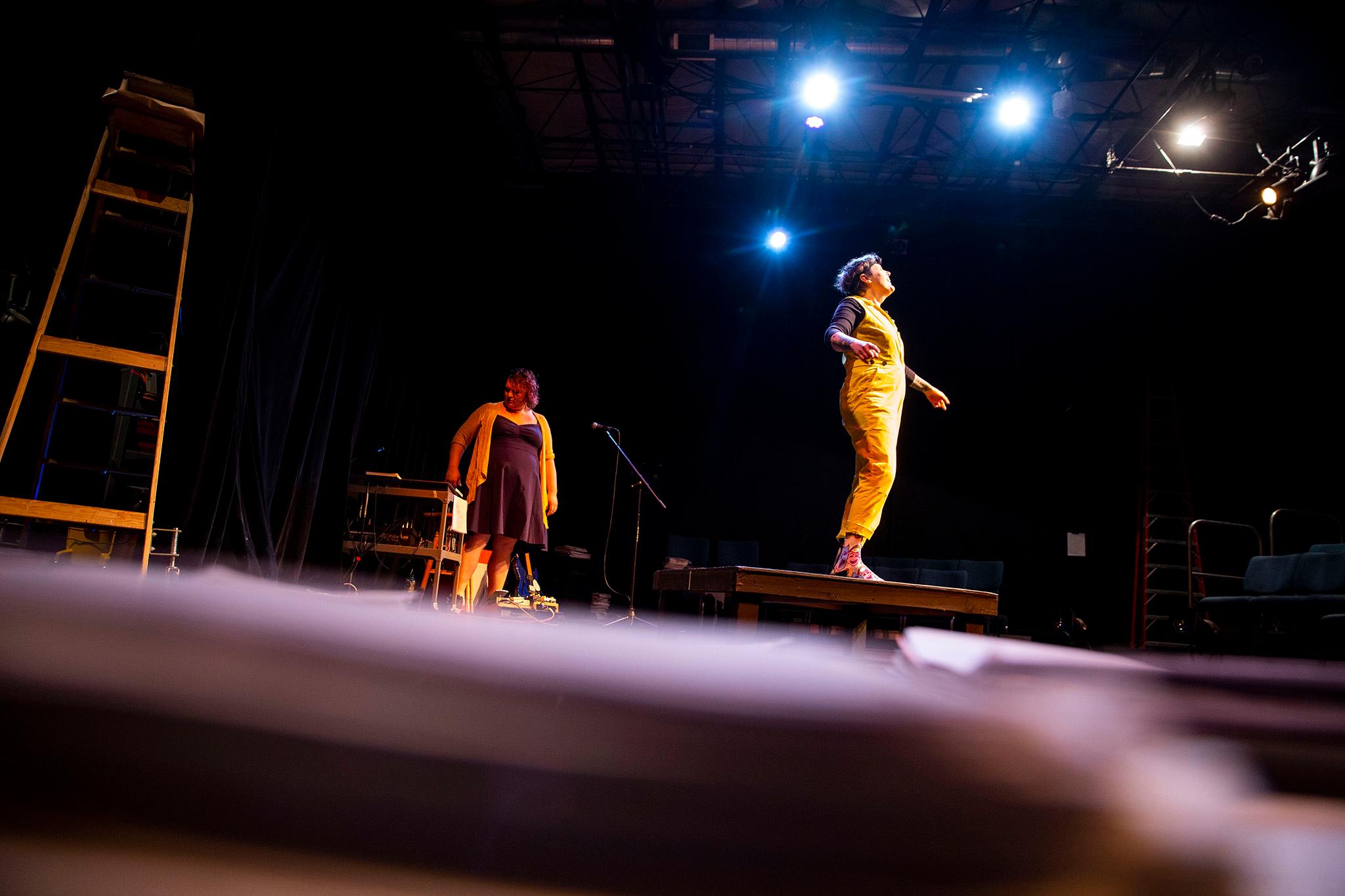
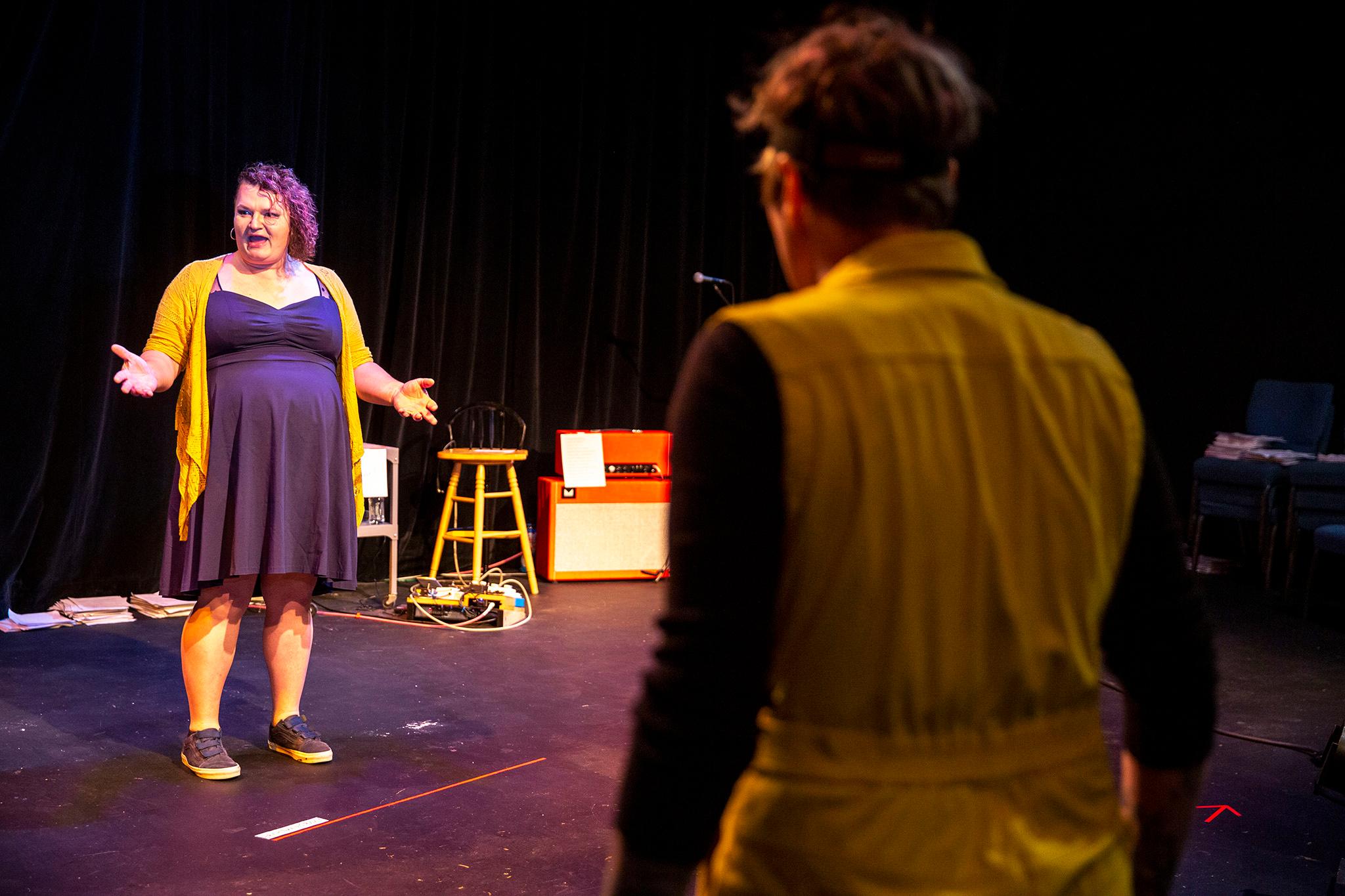
Rada said the project can resonate with anyone because we all have complicated relationships with how we represent in the world, the symbolism that can come from our physical forms, and the tension between how people see us versus how we experience ourselves internally.
"This isn't really a show about being trans. These are just women on stage, talking about some things that are interesting to them, and telling stories about their lives," Rada said. "And a component of that is this piece of identity. But it's not the leading thing. And I think that we're in this time of such identity politics that we end up having often to sort of lead with our identity markers. But in fact, these are personal stories, stories of the body, stories of relationships, and a component of that is our identity. And I actually think that there, many folks will feel a sense of belonging in those stories."
For Cool, the show is about how we reject identities that are hung on us and how we bring to light the identities that we want everyone to see.
"I described this project to someone as the identities that we're born with, the identities that were given, and the identities that we choose for ourselves," she said. "I have a line in one of the songs: 'We've all been classified since we were young. Artist, guitarist, intellectual, son.' As like, things that have been hung on me that I either was OK with or not. And that's the crux of the whole show to me, is how to define that. How we become OK with it. And how we fight back against it."
Pity+Fear (A Travesty) runs at Buntport Theater. Fridays and Saturdays, May 13-20 at 7:30 p.m. Tickets are name-your-own-price. Masks are required and available at the door.

